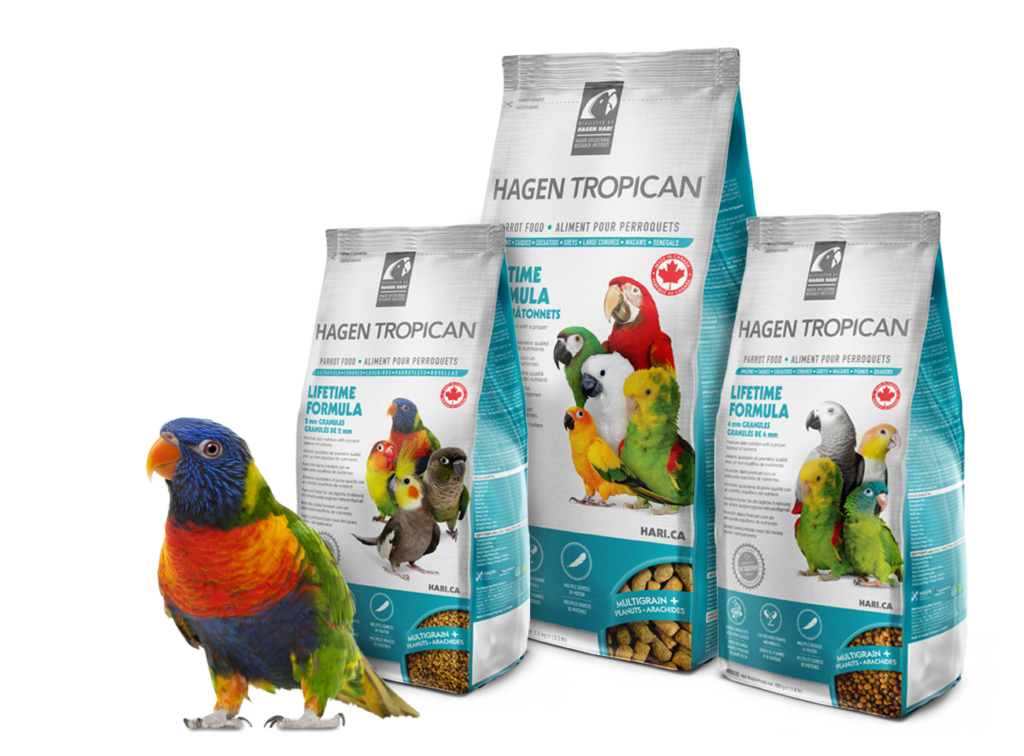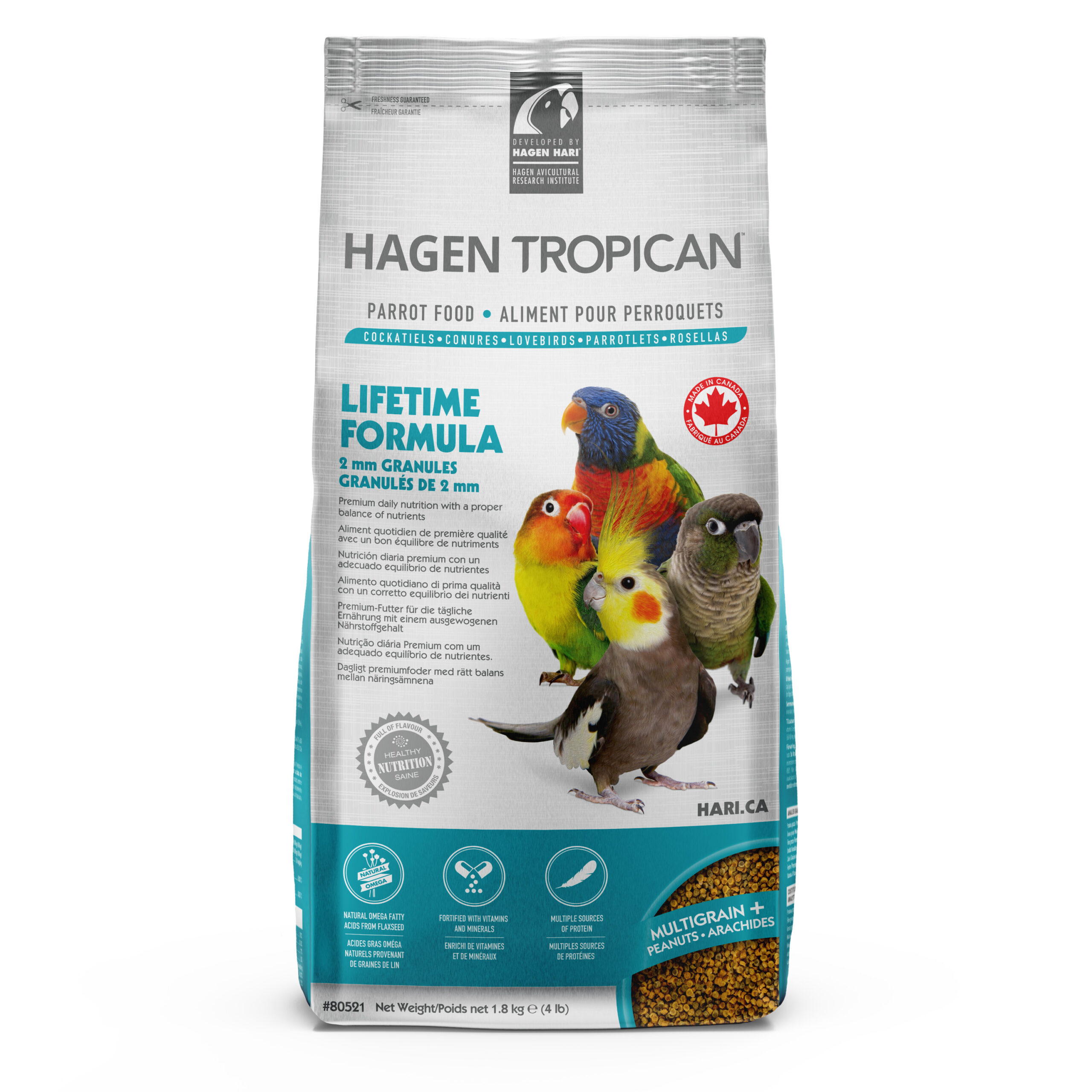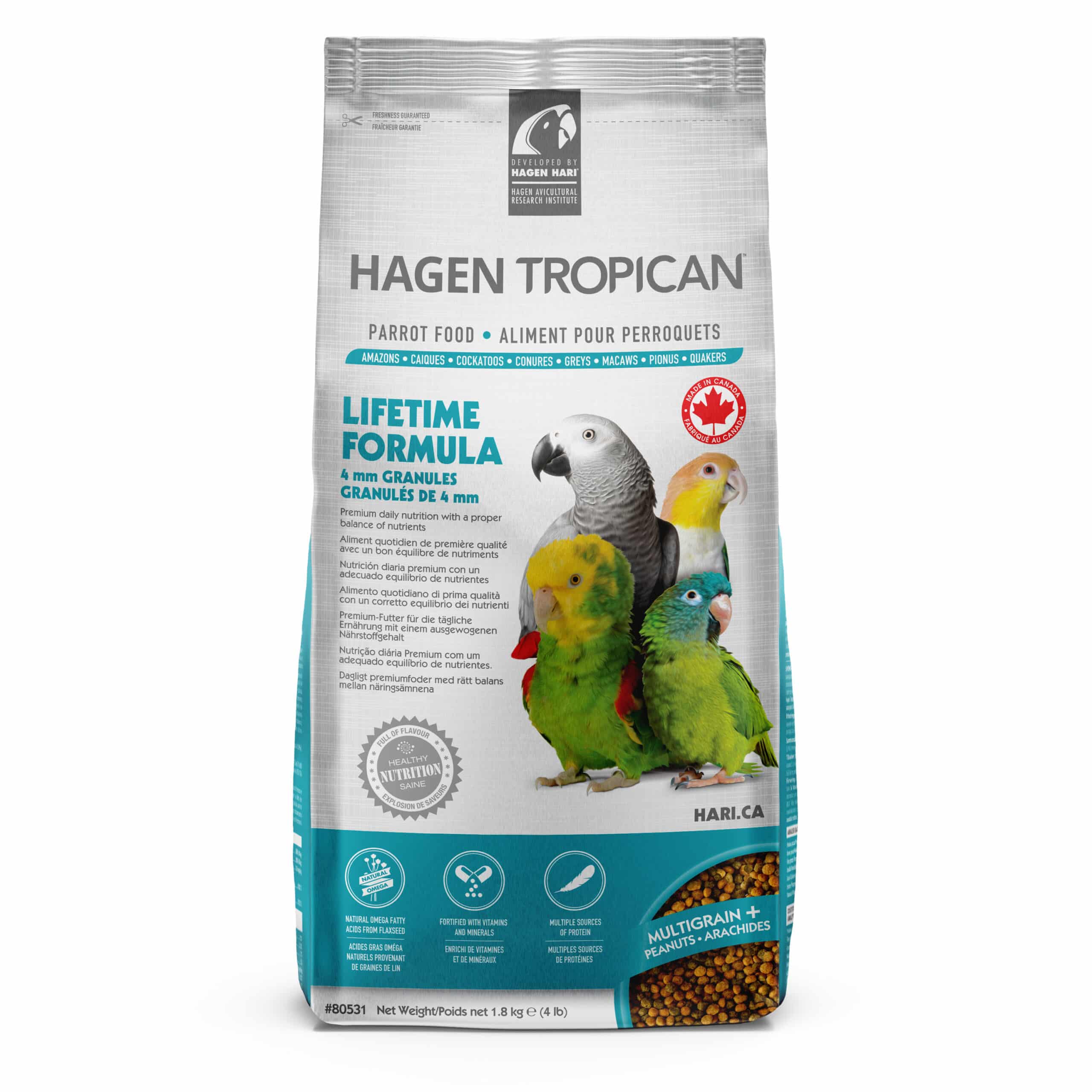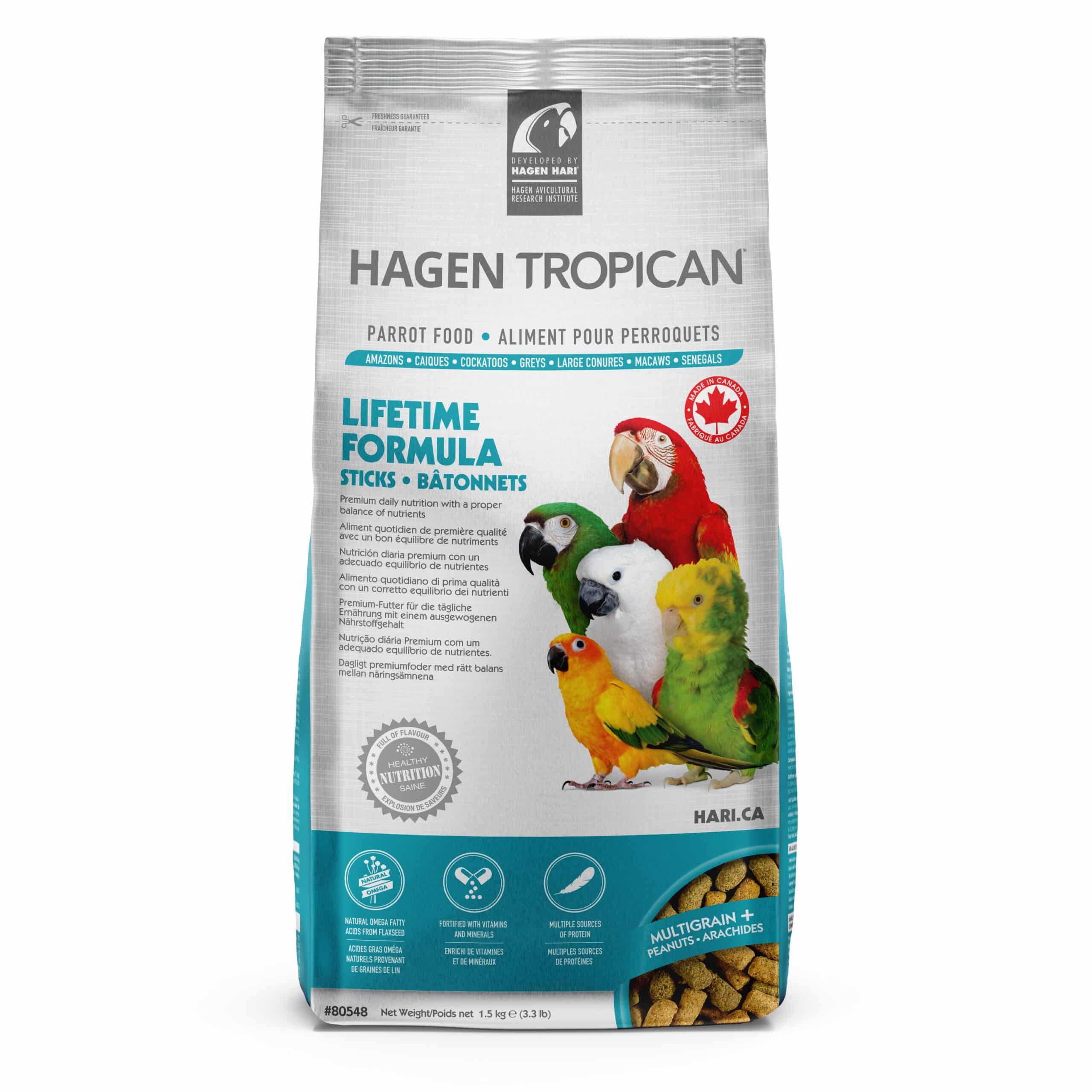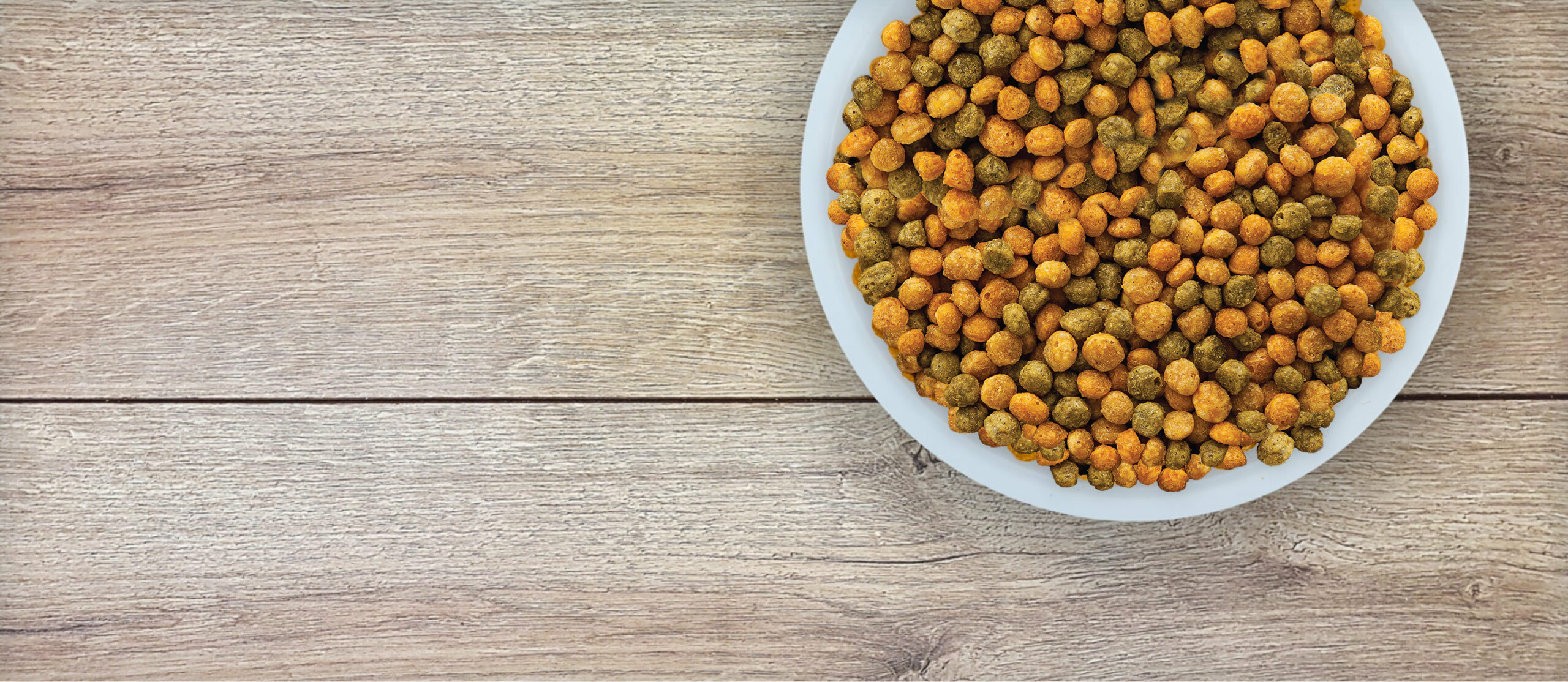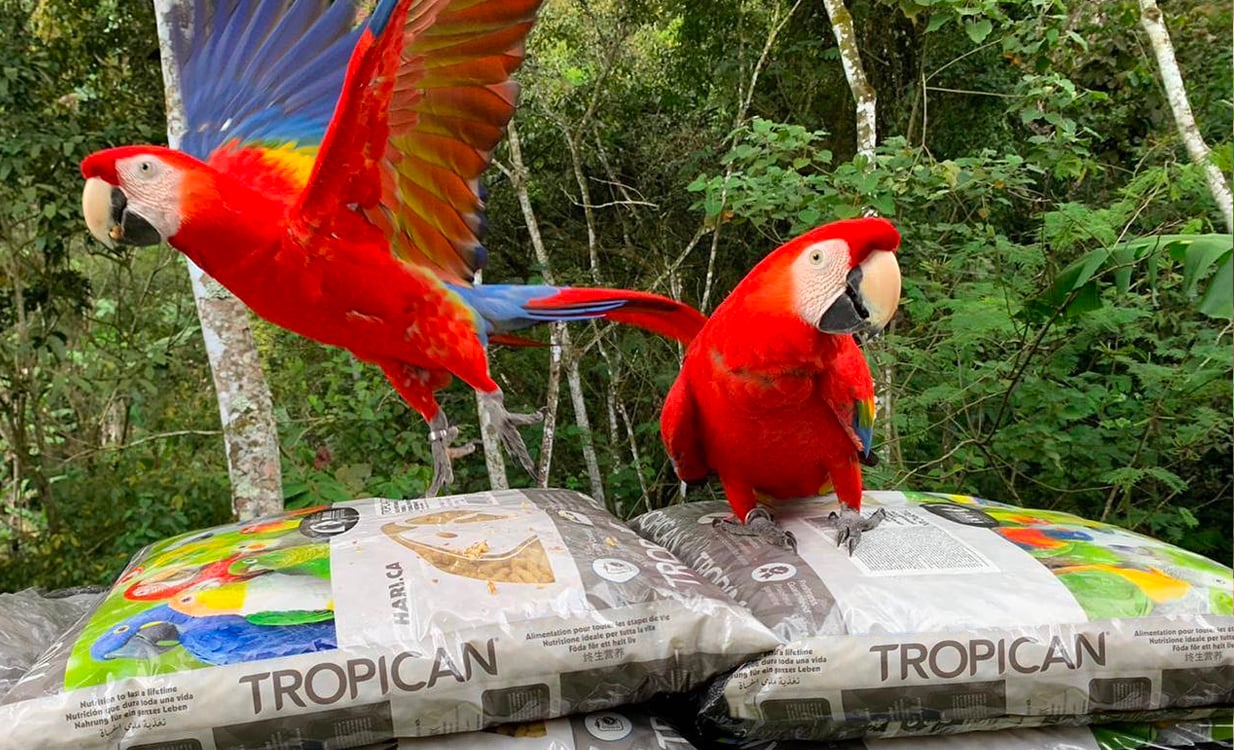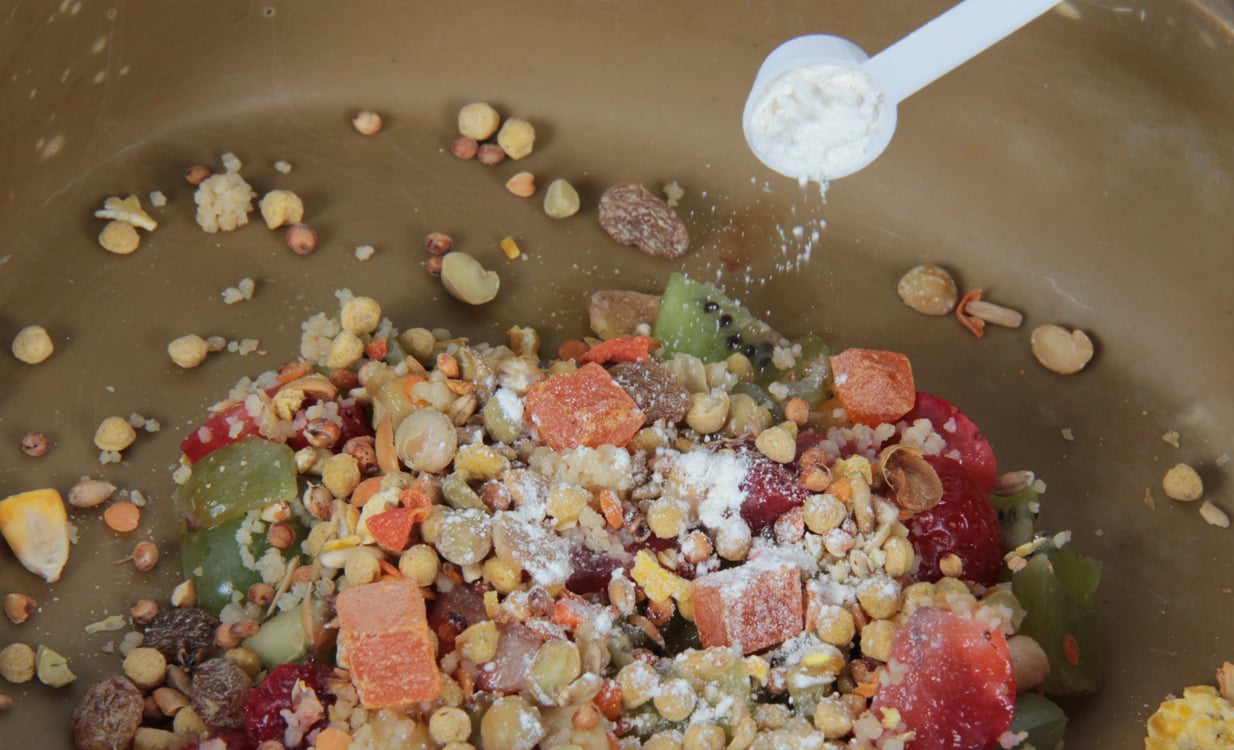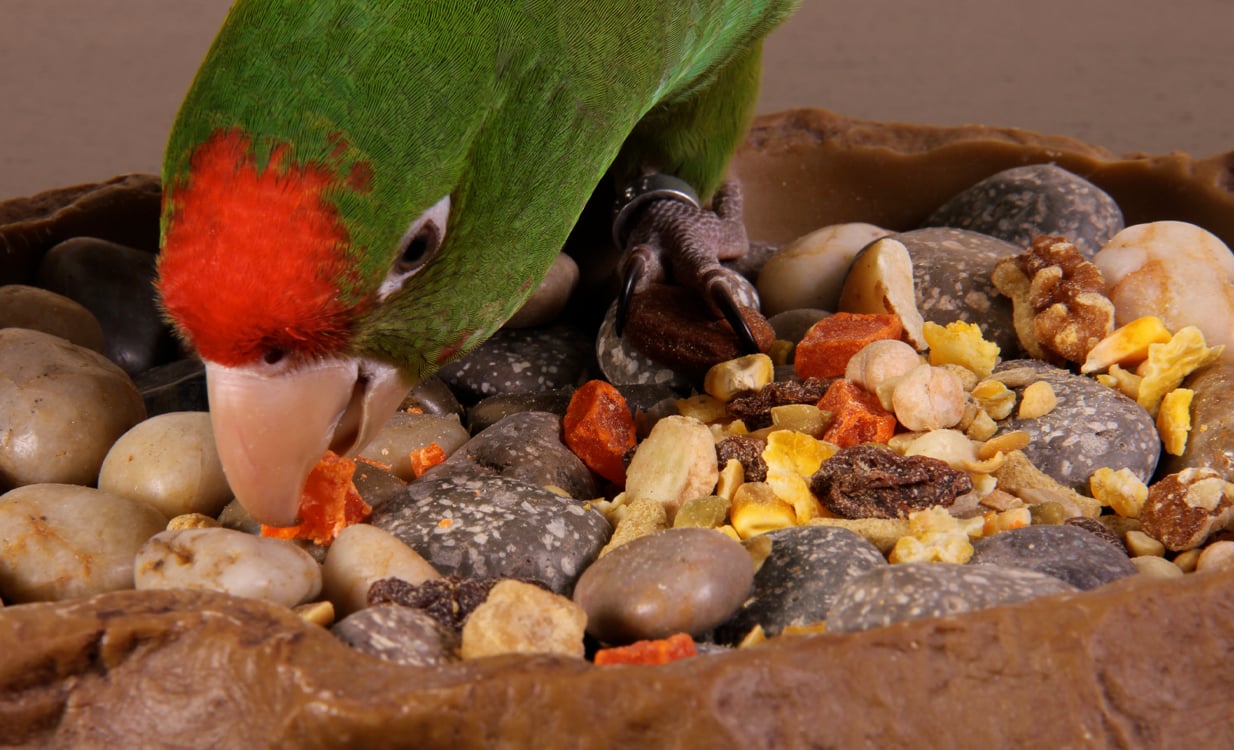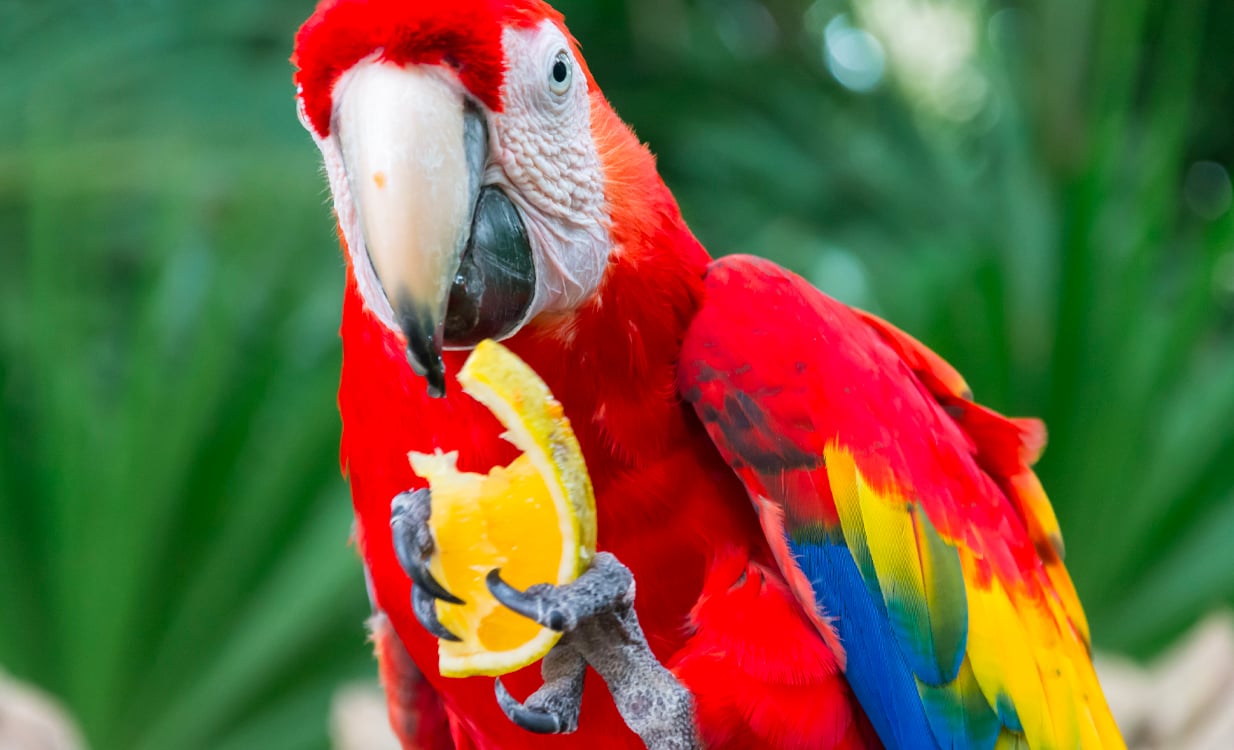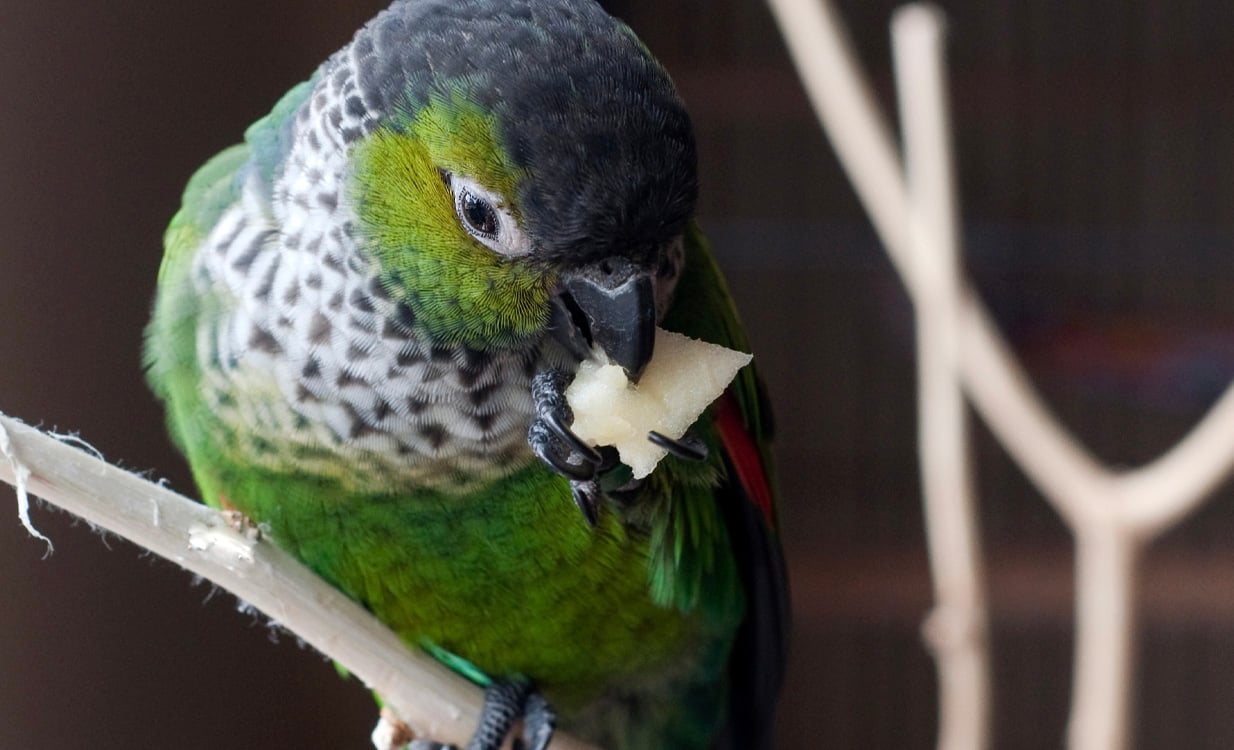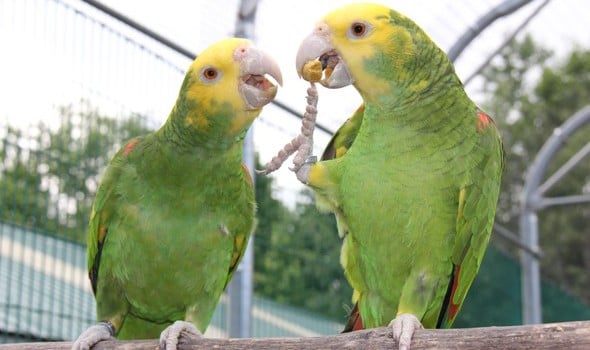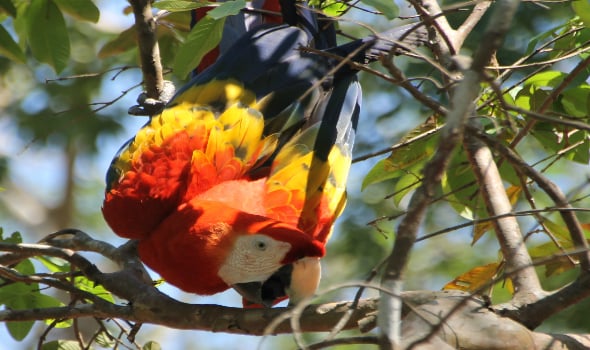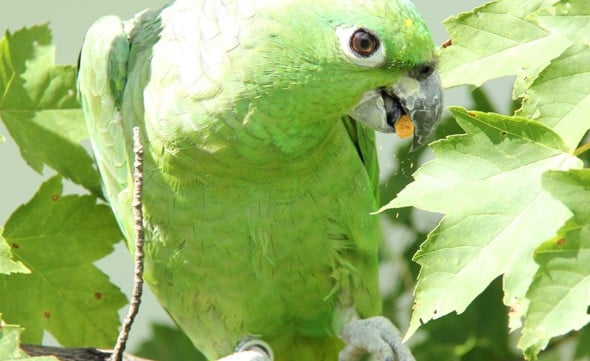Your cart is currently empty!
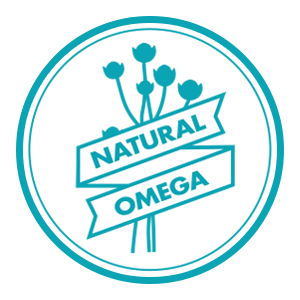
Natural Omega Fatty Acids from Flaxseed

Fortified with Vitamins and Minerals

Multiple Sources of
Protein
Available Products
Keep Learning
Tropican Lifetime Formula
A Premium Multi-grain and Peanut Parrot Food
with Balanced Nutrient Levels
Promoting a Healthy Lifestyle for Parrots
Lifetime Formula is the ideal parrot food for companion birds that are not moulting or facing any other stressors, such as cooler temperatures. With lower protein and calcium content, this food is designed to maintain a healthy lifestyle. The natural colours in Tropican come from natural sources such as carrots, tomatoes, and alfalfa, providing an attractive option for your bird without any artificial flavours.
Lifetime Formula contains a peanut-derived source of fat and protein and essential grains that complement amino acid profiles – critical components for maintaining health in fledged juvenile to adult parrots. The food is also a rich source of Omega fatty acids, thanks to flaxseed, peanuts, and sunflower seeds, which help make feathers shine and promote a healthy body.
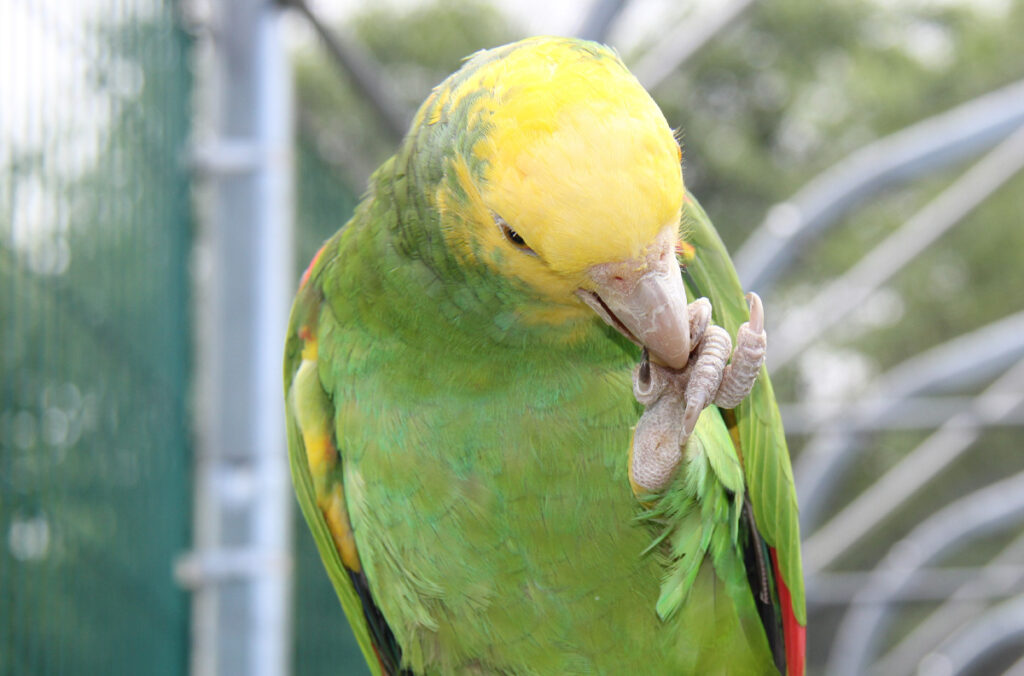
Enhance Your Parrot’s Diet with Tropican Bird Food
Did you know that parrots have more taste buds than chickens? So why settle for bland chicken feed-like diets? Tropican bird food offers a delicious and nutritious meal for your feathered friend with its blend of eight multigrains and human-grade peanuts.
Unlike farm pellets, Tropican granules are designed to break cleanly without producing fine powder, leading to less waste. Additionally, Tropican’s generous levels of essential nutrients allow for enrichment with the addition of fruits and vegetables (generally around 30% of the total quantity of food). The hard and dense morsels also contribute to a healthier beak, vital to your bird’s overall health.
Tropican Lifetime Granules or Lifetime Food Sticks provide a balanced diet for picky eaters, eliminating the need for vitamin supplements as they already contain essential vitamins and minerals. Treat your parrot to a tasty and healthy meal with Tropican bird food.
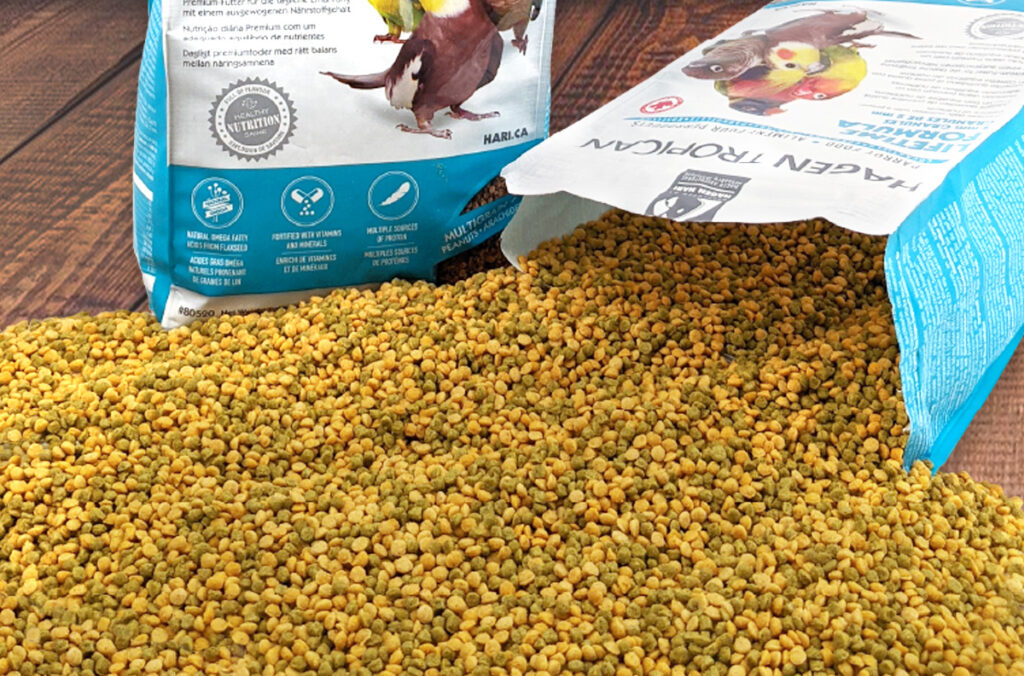
Did You Know?
Lifetime Formula for Parrots…
- Is suitable for fledged juveniles up to adults (that are not-breeding or molting)
- Is free from artificial preservatives, colors, and flavors – colors from natural sources not chemicals
- Provides a balanced diet that is enriched with vitamins and minerals, eliminating the need for additional supplements
- Contains multi-grains blended with peanuts to enhance palatability
- Includes natural omega fatty acids from flaxseed
- Goes through 3-step quality control measures and live feeding trials at the HARI facility

- Is available in multiple sizes and shapes to cater to a wide range of species’ preferences
- Is an extruded kibble for increased palatability, better digestibility and less fines than pellets
- Is ideal for birds with obesity and less active lifestyles
- Helps promote healthy feather growth with multiple sources of protein
- Provides optimal but balanced and safe levels of calcium, vitamin D, and iron for all species’ requirements
- Can be fed to smaller psittacine species throughout all life stages, including breeding season
Specifications
Ensure that your parrot’s dietary needs are met with Tropican Lifetime Formula, a premium balanced diet that is ideal for fledged juveniles and non-breeding, and non-molting adult parrots. It’s a perfect choice for less active birds or those with obesity issues. Additionally, the food can be given to psittacine species of all sizes throughout all their life stages, including their breeding season.
COCKATIELS • LOVEBIRDS • ROSELLAS • PARROTLETS • CONURES • CAIQUES • QUAKERS • PIONUS • AMAZONS• MACAWS • COCKATOOS • GREYS • SENEGALS • SELECT LORIKEET & LORY SPECIES
To ensure that your bird is receiving the necessary nutrients, feed it Tropican food every day in a clean food dish, taking into account the bird’s actual needs and spillage. Provide a fresh, clean supply of water daily.
It’s important to note that Tropican food is intended to be your bird’s primary diet. While fresh fruits, vegetables, and other treats are excellent sources of enrichment, limit them to 30% of your bird’s total diet. When used as directed, no additional vitamin or mineral supplements are necessary.
When introducing a new food, gradually mix it with the “old” food, by switching in 20% every week with current food. This will help prevent digestive upset and allow your bird to adjust to the new food. To keep things hygienic, discard any uneaten portions and clean the food dish before the next feeding.
Corn, soybean meal, wheat, dehulled peanuts, dehulled sunflower seeds, brown rice, canola oil (preserved with mixed tocopherols), dicalcium phosphate, calcium carbonate, lecithin, oat groats, dried tomato, flaxseed, L-lysine, alfalfa nutrient concentrate, choline chloride, DL-methionine, orange oil, banana oil, biotin, vitamin E supplement, niacin, calcium L-ascorbyl-2-monophosphate (source of vitamin C), zinc oxide, manganous oxide, d-calcium pantothenate, vitamin B₁₂ supplement, rosemary extract, beta-carotene, riboflavin, copper sulfate, pyridoxine hydrochloride, thiamine mononitrate, inositol, folic acid, vitamin A supplement, calcium iodate, sodium selenite, vitamin D₃ supplement.
Where does the fruity aroma and pellet colour in Tropican Lifetime come from?
The delightful fruity fragrance in Tropican Lifetime comes from the addition of natural fruit oils such as banana and orange oil. Just before packaging, herbal antioxidants and tocopherols (Vitamin E) are mixed in to preserve freshness. This natural aroma will gradually fade over time after opening, unlike artificial flavours.
The mixed grain composition of Tropican Lifetime gives it a natural yellow colour. Additionally, the food contains orange and green pellets, which get their colour from natural vegetable sources such as tomato (orange) and alfalfa nutrient concentrate (green).
Crude Protein (min.) 13%, Crude Fat (min.) 7%, Crude Fibre (max.) 3.5%, Moisture (max.) 11%, Calcium (min.) 0.8%, Phosphorus (min.) 0.6%, Iron (max.) 75 mg/kg, Vitamin A (min.) 5,000 IU/kg, Vitamin D₃ (min.) 500 IU/kg, Vitamin E (min.) 200 IU/kg, Beta-Carotene (min.) 1.8 mg/kg, Omega-3 Fatty Acids (min.) 0.03%, Omega-6 Fatty Acids (min.) 0.25%.
Percentage of a whole: Aspartic Acid 1.16%, Threonine 0.5%, Serine 0.68%, Glutamic Acid 2.54%, Proline 0.91%, Glycine 0.57%, Alanine 0.7%, Cystine 0.21%, Valine 0.64%, Methionine 0.29%, Isoleucine 0.55%, Leucine 1.18%, Tyrosine 0.52%, Phenylalanine 0.69%, Lysine 0.71%, Histidine 0.37%, Arginine 0.89%, Tryptophan 0.15%.
Per 100 Grams of Protein: Aspartic Acid 8.03%, Threonine 3.46%, Serine 4.71%, Glutamic Acid 17.59%, Proline 6.30%, Glycine 3.95%, Alanine 4.85%, Cystine 1.45%, Valine 4.43%, Methionine 2.01%, Isoleucine 3.81%, Leucine 8.17%, Tyrosine 3.6%, Phenylalanine 4.78%, Lysine 4.92%, Histidine 2.56%, Arginine 6.16%, Tryptophan 1.04%.
Per 1000 kcal: Aspartic Acid 0.33%, Threonine 0.14%, Serine 0.19%, Glutamic Acid 0.72%, Proline 0.26%, Glycine 0.16%, Alanine 0.2%, Cystine 0.06%, Valine 0.18%, Methionine 0.08%, Isoleucine 0.16%, Leucine 0.33%, Tyrosine 0.15%, Phenylalanine 0.2%, Lysine 0.2%, Histidine 0.1%, Arginine 0.25%, Tryptophan 0.04%.
3,528 kcal/kg (Calculated ME)
When planning your purchase be sure to select from the following morsel variations according to your bird species.
2 mm Granule: COCKATIELS • LOVEBIRDS • ROSELLAS • PARROTLETS • SELECT LORIKEET & LORY SPECIES
4 mm Granule: CONURES • CAIQUES • QUAKERS • PIONUS • AMAZONS• MACAWS • COCKATOOS • GREYS
Sticks: CONURES • SENEGALS • PIONUS • AMAZONS • GREYS • COCKATOOS • MACAWS
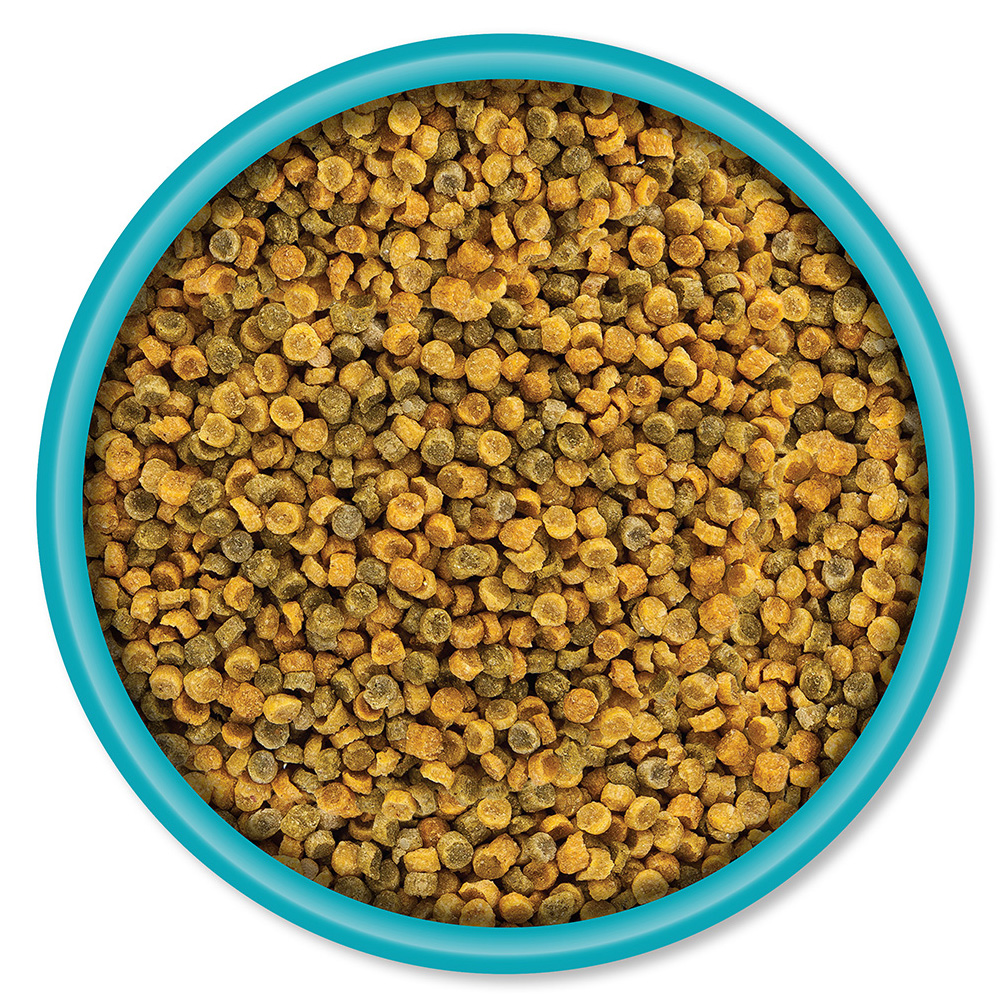
2 mm Granules
80520 – 820 g (1.8 lb)
80521 – 1.8 kg (4 lb)
80523 – 3.63 kg (8 lb)
80517 – 11.34 kg (25 lb)
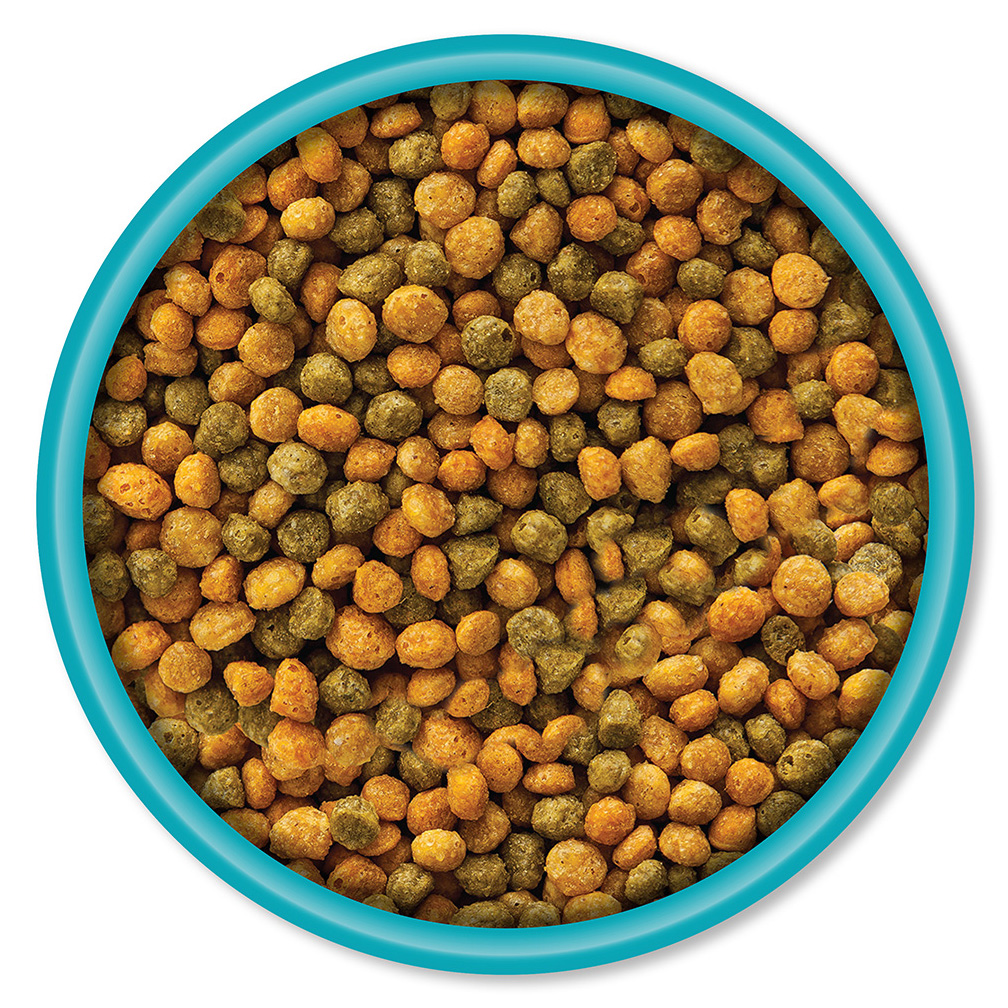
4 mm Granules
80530 – 820 g (1.8 lb)
80531 – 1.8 kg (4 lb)
80533 – 3.63 kg (8 lb)
80541 – 11.34 kg (25 lb)
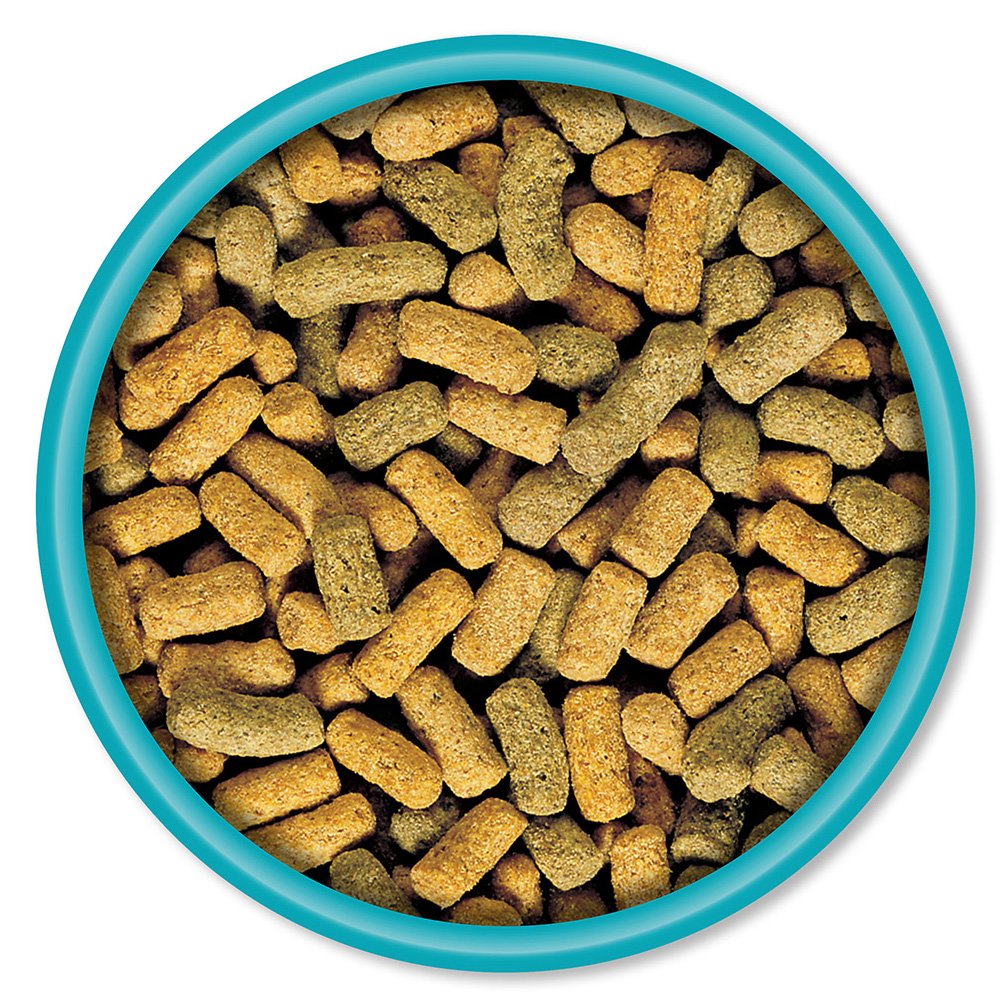
Sticks
80548 – 1.5 kg (3.5 lb)
80542 – 3.63 kg (8 lb)
80544 – 9.07 kg (20 lb)
For maximum freshness, once opened, store the sealed bag in a sealed container in a cool, dry place. Our safe and effective Co2 treatment and air barrier bags ensure insect control and freshness.
Manufactured in a facility that packages products containing known priority allergens.
Feeding Resources
Companion Parrot Weight Chart
Keeping track weekly of your bird’s weight
is vital to their overall health.
Extruded Diet Conversion Guide
Helpful tips and methods to transition your bird
to a balanced extruded diet.
Parrot Feeding Recommendations
Do you know the daily recommended
amount of food for your bird?
Want To Know More?
Proudly Canadian Made
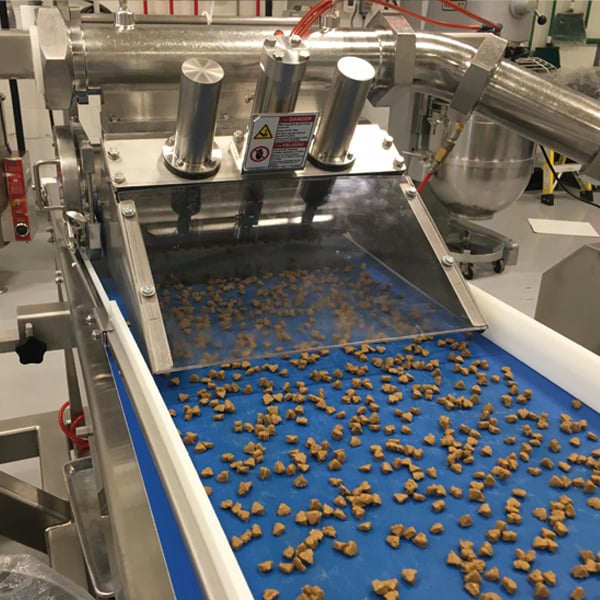
Our 3-Step Quality Control Process

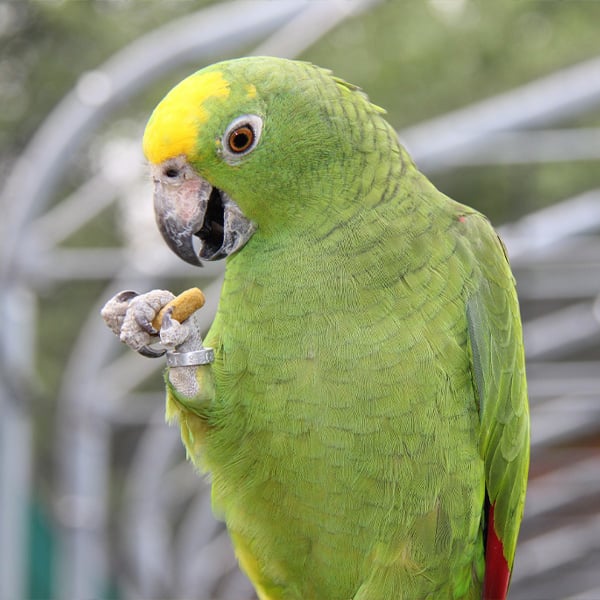
Learn More About Feeding & Nutrition
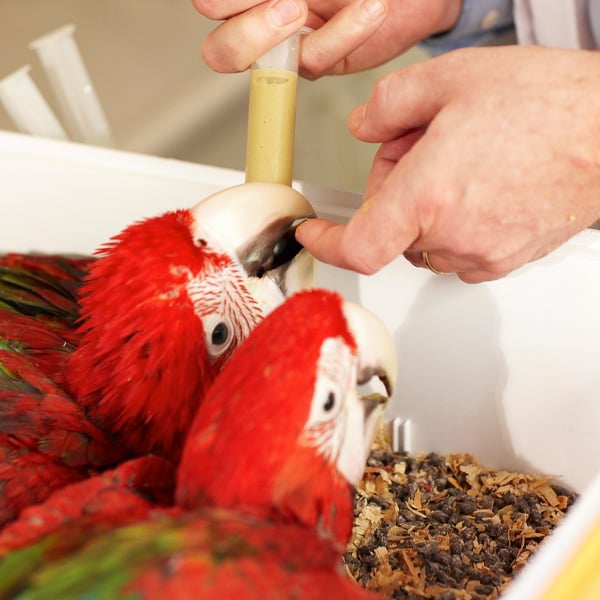
Avian Nutrition: Trends & Philosophies
Related Articles
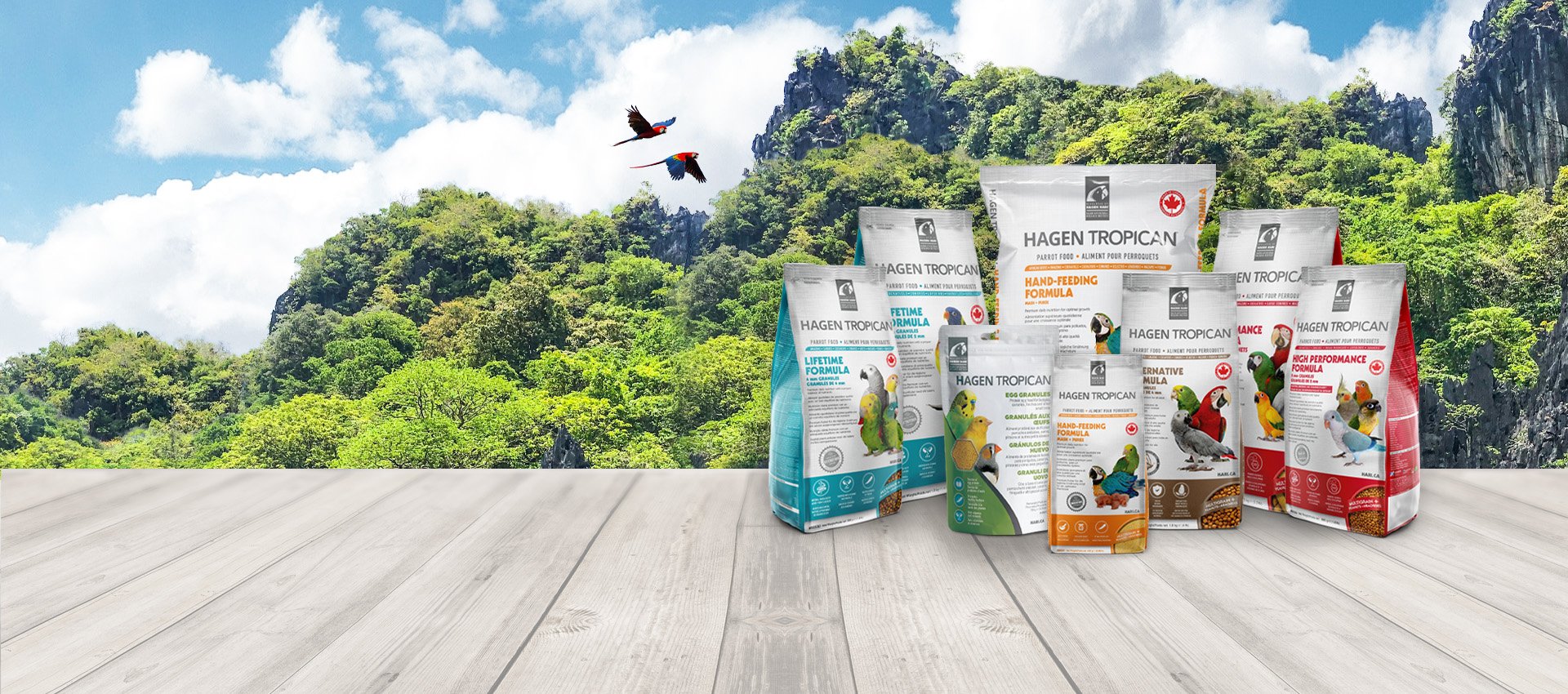
Choosing the perfect formula for your pet bird.
Companion parrots require a balanced diet that contains a nutritious blend of grains, seeds, nuts, vegetables, fruits, vitamins and minerals. Pet parents also need to consider the species, life stage and lifestyle of their pet bird.


